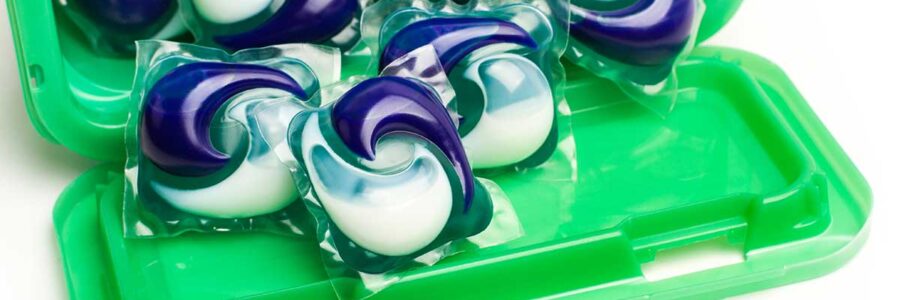Recently, laundry detergent pods have transformed the landscape of a mundane household chore: laundry. Among these, Tide Pods have emerged as a ubiquitous choice, embodying efficiency and innovation in cleaning. However, a recent disclosure on the TODAY Show by Adrian Grenier has shed light on these colorful capsules’ safety and environmental ramifications. Contrary to common concerns regarding their toxic chemical composition and fragrances, Grenier’s apprehension extends to the material encapsulating these detergents—a form of dissolvable plastic that proves far from innocuous.
The Plastic Predicament
The encapsulation of detergent within what is often marketed as “dissolvable plastic” can be misleading. This plastic doesn’t truly dissolve in the ecological sense but disintegrates into smaller particles, known as microplastics. These microplastics pose a growing concern for environmentalists as they infiltrate water systems, the broader environment, and, eventually, the food chain, leading to unintentional ingestion by humans and animals alike. The degradation process of Tide Pods exacerbates this pollution issue, contradicting the pristine image projected by their vibrant aesthetics and purported convenience.[1]
Beneath the Surface: Chemical Complications
While the plastic dilemma is substantial, it’s imperative to recognize the contents housed within these pods. The chemicals and fragrances packed into each pod pose significant health hazards. Research increasingly links exposure to certain synthetic chemicals in household cleaning products to hormonal disruptions and organ damage. Once deemed a trade-off for superior cleaning efficacy, these substances are now under scrutiny for their long-term effects on human health and the environment.[2]
The Fallacy of Safe Decomposition
One of the marketing claims surrounding Tide Pods and similar products is their alleged safety and complete degradation. However, evidence suggests that “safe” biological degradation is more fiction than fact. Instead of vanishing harmlessly, the constituents of these pods—both plastic and chemical—persist, contributing to environmental deterioration and posing risks to water quality and ecosystem vitality.
Exploring Alternatives
The scrutiny of Tide Pods’ issues by public figures like Adrian Grenier serves as a wake-up call for consumers to reassess their choices and explore safer, more sustainable alternatives. Numerous non-toxic laundry solutions are available that neither compromise the environment nor jeopardize human health for the sake of convenience. These alternatives range from biodegradable detergent sheets to plant-based liquid detergents devoid of harsh chemicals and synthetic fragrances.
Embracing a Non-Toxic Lifestyle
Transitioning to non-toxic laundry solutions represents a stride toward a healthier lifestyle and a more sustainable planet. Consumers are encouraged to research and opt for products that align with these values, ensuring their cleaning practices don’t inadvertently yield harmful consequences. As we progress, let’s engage in dialogues and share insights about non-toxic living, from laundry hacks to broader lifestyle modifications, fostering a community dedicated to environmental stewardship and holistic well-being.
The Tide Pods controversy underscores a broader conversation about the impact of our everyday decisions. We collectively contribute to a cleaner, safer world by choosing non-toxic and eco-friendly alternatives. Your voice and choices are influential—join the discourse and impart your non-toxic living tips in the comments below. Together, we can effect change.
References:
- Does the Film around Detergent Pods Really Biodegrade? A Debate …, www.washingtonpost.com/climate-solutions/2022/11/15/laundry-detergent-pod-plastic-pva/. Accessed 14 Mar. 2024.
- US Department of Commerce, National Oceanic and Atmospheric Administration. “What Are Microplastics?” NOAA’s National Ocean Service, 13 Apr. 2016, oceanservice.noaa.gov/facts/microplastics.html. Accessed 14 Mar. 2024.
- Rádis-Baptista G. Do Synthetic Fragrances in Personal Care and Household Products Impact Indoor Air Quality and Pose Health Risks? J Xenobiot. 2023 Mar 1;13(1):121-131. doi: 10.3390/jox13010010. PMID: 36976159; PMCID: PMC10051690.


